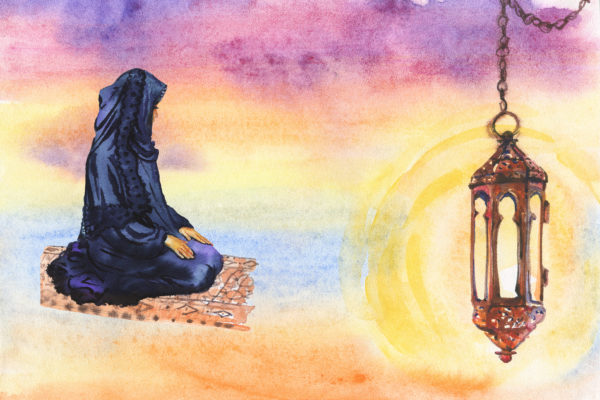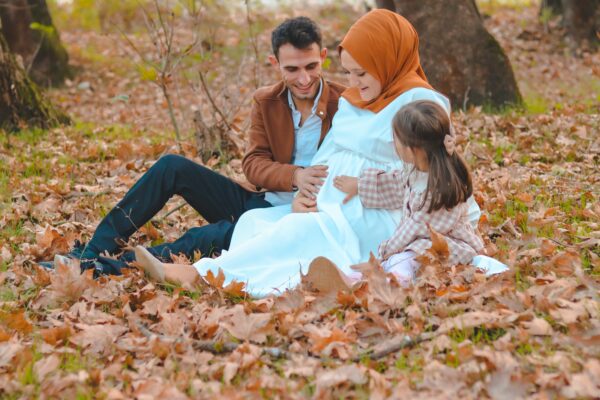Understanding that centuries of imperialism and colonialism has played an enormous role in shaping how the majority of the world views Muslim women is vital in understanding how to combat Islamophobia.
Understanding that centuries of imperialism and colonialism has played an enormous role in shaping how the majority of the world views Muslim women is vital in understanding how to combat Islamophobia.
On this week’s TMV Podcast, Inayat Kanji speaks to Suhaiymah, aka The Brown Hijabi, and Ishtar Al-Shamman on the legacy of colonialism, how we need to address the harmful effects of focusing too much on the physical hijab, and what feminism means today.
Listen to the full discussion here:
Suhaiymah, also known by her stage name The Brown Hijabi, is a famous spoken word artist and poet while Ishtar Al-Shamman is a creative artist focusing on embroidery. Together, they emphasized the need for more creative spaces not only for Muslims but for Muslim women especially. By owning one’s voice and being able to express it in whatever creative avenue they want, many Muslim women gain both the long overdue representation and platform needed for better equality. Centuries of colonialism has much to do with hindering this as well, according to both.
Feminism has been used as an imperialist tool, and can be bound up in the ‘liberation’ of women. Even the idea of female liberation has been used to occupy countries.”
Suhaiymah (The Brown Hijabi)
Understanding that centuries of imperialism and colonialism has played an enormous role in shaping how the majority of the world views Muslim women is vital in understanding how to combat Islamophobia, according to Suhaiymah. Equating ideas such as “oppression” and “submissiveness” with the hijab is a clear result of colonialization, and to continue using such descriptions when describing Muslim women is hugely detrimental when it comes to intersectional feminism. To justify colonialism and orientalism both historically and today, many have continued to tokenize Muslim women, especially those wearing hijab.
The need to focus too much on the physical hijab must stop, according to both Suhaiymah and Ishtar. Acknowledging the fact that Islam asks for all souls, regardless of whether male or female, to observe acts of hijab such as modesty and humility is important in understanding why the conversation around the physical hijab is often detrimental when trying to help Muslim women. The conversation, instead of focusing in on the physical hijab, should be more around how we can better uplift many Muslim women who are oppressed not because of their hijab but because of real-world issues such as poverty, racism, and misogyny.
We [Muslim women] are so often represented by others but never by ourselves.”
Suhaiymah (The Brown Hijabi)
So what does feminism look like today? According to both Suhaiymah and Ishtar, the need to focus on intersectional feminism is extremely important. While many get angry at simply the word “feminism”, we need to move beyond simple definitions and look to what the word actually points towards: the need for women to not just have the same things as men but to be completely free and able to move within their own space without the constraint of the patriarchy. While many are hesitant to label themselves as a feminist, the importance lies not with how you label yourself but with what actions you’re taking to help create a more visible and open space for women to express themselves.
It’s about finding your voice and owning it. Put yourself out there. Become your own voice.”
Ishtar Al-Shamman
While female empowerment and feminism will always be loaded words, many are beginning to see the true underlying problems that women across the world are facing. Muslim women such as Suhaiymah and Ishtar, who use creative arts to express themselves, are but one example of how women can take back their narrative and find their own platform. By understanding that the hijab is not something physical used for constraint is also important in moving forward towards more intellectual conversations around the empowerment of women. Although the past may seem dire, it does seem that Muslim women, so often sidelined because of the fact that they are women as well as Muslim, are slowly but surely taking back the conversation about themselves and retelling their stories in their own words.
Follow The Brown Hijabi’s blog here.
Follow Ishtar’s art here.





